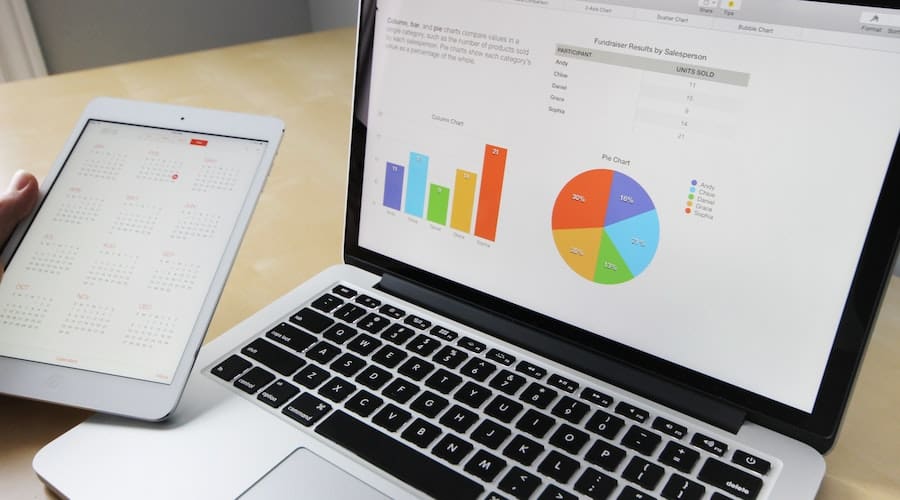Approximately 51% of marketers currently use marketing automation statistics. The increasing demand for relevant and personalized marketing communication has driven marketers to adopt marketing automation tools to automate repetitive and manual tasks, manage campaigns, and deliver personalized messages to their customers.
Marketing automation has become an indispensable tool that enables marketers to streamline their operations, scale their marketing efforts, and improve their roi. In this article, we will explore some of the latest statistics on marketing automation, highlighting its adoption rate, benefits, and challenges faced by marketers in implementing automation solutions.
We’ll also delve into the future of marketing automation and how it is poised to shape the marketing landscape in the coming years.
Market Research On Marketing Automation Statistics
Marketing automation is the process of automating tedious marketing activities that are time-consuming and laborious. The use of automation technology allows marketers to focus on tasks. That demand a more human approach rather than time-consuming monotonous tasks. In this blog post, we will take a closer look at some of the market research on marketing automation and the impact it has on lead generation and conversion rates, customer retention, and roi.
Overview of Market Research Reports on Adoption Rates for Marketing Automation
Marketing automation adoption rates are continuously on the rise. Here are some of the latest industry reports on the adoption of marketing automation:
- According to a recent report by invesp, 80% of users claimed automation increased their leads, and 77% of users saw an increase in their overall conversions.
- According to salesforce, marketers reported a 15% increase in revenue and a 12.2% decrease in marketing overhead after implementing marketing automation software.
- A report by email monday reported that a total of 51% of companies today is currently using marketing automation.
- Invesp also found that 32% of respondents were planning to add marketing automation to their marketing strategy.
Discussion Of How Marketing Automation Impacts Lead Generation And Conversion Rates
Marketing automation can significantly impact lead generation and conversion rates by streamlining the lead nurturing process. Here are some ways marketing automation can impact lead generation and conversion rates:
- By automating emails, targeting specific customers with custom messaging, brands can improve lead generation and conversion rates since they can create personalized content crafted explicitly for each lead without manually sending an email to each one.
- Marketing automation can prevent leads from being lost by making use of lead scoring and qualification to creating a better opportunity for sales teams to convert a lead into a customer.
- Lead segmentation allows the appropriate marketing messages to be sent to each lead based on their preferences and behavior, which leads to increased engagement and, ultimately, higher conversion rates.
Analysis Of How Marketing Automation Affects Customer Retention And Roi
Marketing automation can have a significant impact on customer retention and return on investment (roi). Here are some key takeaways:
- Retaining customers is five times cheaper than obtaining new ones. Companies that use marketing automation can improve customer retention by automating tasks like follow-up emails, creating relevant content that will continually engage their customers, and personalizing messages based on their behavior and interests.
- Marketing automation can help improve roi by identifying different stages of customer action. This not only makes marketing measurement more comfortable but also allows marketers to optimize roi by investing in marketing strategies that deliver better results.
- Automation technology can also assess the engagement rate, allowing marketers to tweak the campaigns rapidly to increase retention and ultimately, roi.
With the above insight, it’s clear that marketing automation has become an essential tool in the marketing industry, with a direct impact on lead generation, conversion rates, customer retention, and ultimately, roi. If you haven’t already adopted marketing automation, you are undoubtedly lagging behind in the competition; this is the best time to act today.
The Role Of Artificial Intelligence In Marketing Automation

Marketing automation has become a buzzword in the world of digital marketing, and for a good reason. It streamlines marketing workflows, reduces human error and saves marketers valuable time. The integration of artificial intelligence (ai) in marketing automation has taken personalization and customer engagement to the next level.
In this blog post, we will discuss the role of ai in marketing automation. How it impacts customer engagement and personalization, and provide examples of successful ai-based marketing automation campaigns.
Explanation Of Ai And How It Is Integrated Into Marketing Automation
Artificial intelligence involves the simulation of human intelligence in machines that are programmed to think like humans and mimic their actions. The integration of ai in marketing automation statistics helps marketers to use data efficiently and improve customer engagement. Some ways in which ai works with marketing automation include:
- Smart segmentation: Ai-driven marketing automation allows for the creation of targeted and more personalized messages to specific audience segments.
- Predictive analytics: Ai can analyze consumer behaviour patterns and predict future actions, which makes it easy for marketers to create follow-up campaigns tailored to specific customer needs.
- Real-time monitoring: The use of ai in marketing automation makes it possible to monitor customer interactions and respond quickly to changing customer needs.
Discussion Of How Ai-Powered Marketing Automation Impacts Customer Engagement And Personalization
Ai-powered marketing automation impacts customer engagement and personalization in the following ways:
- Personalized content: Ai can analyze customer data, including preferences, purchase history, and online behaviours, to create highly interactive and personalized content that delivers a unique experience to each customer.
- Automated customer service: The integration of ai with chatbots provides a quick response to customers’ queries, requests, and complaints 24/7, which ultimately boosts customer engagement.
- Behavioural targeting: Ai makes it easy to segment audiences based on their behaviours, making it easier for marketers to create targeted content that resonates with their specific needs.
- Improved customer experience: Ai helps marketers identify customers’ needs and preferences, which results in a personalized customer experience. By anticipating customer needs, marketers can provide tailored content that aligns with what customers want.
Examples Of Successful Ai-Based Marketing Automation Campaigns
The following are examples of successful ai-based marketing automation campaigns:
- Netflix: Netflix uses ai to analyze customers’ viewing patterns and recommends relevant films and tv shows they may not have known about, providing a personalized viewing experience that ultimately increases customer engagement.
- Spotify: Spotify’s discover weekly playlist recommends personalized music playlists based on previous listening habits that ultimately improves customer engagement.
- Amazon: Amazon has integrated ai in its product recommendations, where it shows customers products that they are likely to purchase based on their previous browsing and purchasing history.
The integration of ai in marketing automation is changing the way marketers engage customers. Marketers need to harness the benefits of ai while safeguarding customer data privacy and ensuring ethical use. Ai-powered marketing automation has the potential to revolutionize customer engagement, providing personalized, targeted and responsive campaigns. It increases customer retention and ultimately business growth.
Marketing Automation Trends And Predictions
As the digital landscape expands, marketing automation continues to gain traction among marketers worldwide. The marketing automation market size is expected to reach $6. 4 billion by 2024, with companies leveraging automation to streamline their marketing processes. In this section, we will discuss the latest trends in marketing automation adoption, new features and technologies. In the market, and predictions on how marketers may continue to leverage marketing automation to achieve their business goals.
Overview Of Latest Trends In Marketing Automation Adoption
Marketing automation adoption is increasing with each passing year, with businesses of different sizes embracing the technology. Here are some of the most up-to-date trends in marketing automation adoption:
- More businesses are adopting marketing automation to enhance their email marketing campaigns, followed by social media and lead generation.
- Marketers are now using data analytics for targeted customer segmentation and personalized content creation.
- Integration with crm is becoming more common, allowing companies to track leads and automate follow-up sequences.
- Businesses are implementing complex workflows within the automation software to streamline various operational tasks.
- Ai and machine learning are being integrated into marketing automation to enable better predictive analysis and improve user experience.
Insight Into New Marketing Automation Features And Technologies In The Market
As marketing automation, new features and technologies are being introduced to the market to improve the software’s functionality. Some of the newest features and technologies include:
- Chatbot automation that uses ai to provide customer support and increase sales.
- Behaviour-based lead scoring that can predict the likelihood of a lead converting into a customer.
- Automated ad platforms that use real-time bidding and ai to optimize advertising campaigns on various platforms.
- Predictive analytics that can analyze data from multiple sources and provide insights for better decision-making.
Future Predictions On How Marketers May Continue To Leverage Marketing Automation To Achieve Their Business Goals
Marketing automation is expected to continue to evolve, with an increasing number of functionalities geared towards better customer engagement. Here are some predictions for the future of marketing automation:
- Marketers will increasingly use automation software to enable seamless cross-channel marketing.
- The integration of ai and machine learning with marketing automation software will continue to enable better predictive analysis and decision-making.
- Visual content will play a more significant role in marketing automation, with more tools being introduced to enable the creation of such content.
- Improved automation software will enable more accurate analytics and provide a better understanding of customer behaviour, which will enable marketers to personalize their messaging even further.
Marketing automation is a rapidly developing technology that will continue to revolutionize digital marketing. As businesses continue to shift their focus towards digital, marketing automation will become an indispensable tool in achieving business goals.
Frequently Asked Questions For Marketing Automation Statistics (How Many Marketers Use Automation?)
How Many Marketers Use Automation?
As of 2021, around 80% of marketers use some form of marketing automation. This percentage is expected to grow as businesses see and the benefits of streamlining marketing processes.
Why Do Marketers Use Automation?
Marketers use automation to save time, increase efficiency, improve customer experience, and drive revenue. Automation can handle routine tasks, send personalized messages, and provide insights on customer behavior.
What Tasks Can Be Automated With Marketing Automation?
Marketing automation can automate tasks such as lead capture, lead nurturing, social media scheduling, ad targeting, and analytics reporting. It reduces manual effort and frees up time to focus on more strategic initiatives.
Does Marketing Automation Work For Small Businesses?
Yes, marketing automation can work for small businesses. In fact, it can be a valuable tool as. It allows small businesses to compete with larger companies by automating routine tasks and delivering personalized customer experiences.
What Are The Most Popular Marketing Automation Platforms?
There are many marketing automation platforms available, including hubspot, marketo, pardot, activecampaign, and mailchimp. Each platform has its own unique features and pricing, so it is important to find the best fit for your business needs.
Conclusion
This blog post, we can confidently say that marketing automation is becoming increasingly prevalent in the marketing world. The statistics show that businesses have implemented marketing automation. They are seeing significant improvements in their marketing efforts, from lead generation to customer retention.
With the increasing competition and the need to stay ahead of the game. So, marketers cannot afford to lag in adopting marketing automation. The statistics we have discussed today can be helpful to businesses and marketers, giving them insights into the benefits of marketing automation and how it can help them achieve their marketing goals.
